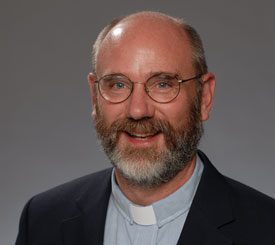The Reformed confessions distinguish between the elements of worship and the circumstances of worship. In Westminster Confession 21 we say, “…the acceptable way of worshiping the true God is instituted by himself, and so limited by his own revealed will, that he . . . Continue reading →
2013 Archive
A Year Without The Internet
Paul Miller writes: I was wrong. One year ago I left the internet. I thought it was making me unproductive. I thought it lacked meaning. I thought it was “corrupting my soul.” It’s a been a year now since I “surfed the . . . Continue reading →
Why Do Some Say That Doubt Is Of The Essence Of Faith?
Curt writes to ask, I have a question. In “A Brief History of Covenant Theology” You write: For most of the Medieval period, the Western (Latin) church and the major theologians agreed that God says what he says about us, because we . . . Continue reading →
Could Instruments Be Idols?
Friday, in the Medieval-Reformation course I gave a lecture on Calvin’s doctrine of worship during which a student asked about instruments. I replied that Calvin (and most of the Reformed) would have viewed the introduction of instruments into the service the same . . . Continue reading →
Where Was Our Church Before Luther And Zwingli? (2)
IV. Second, they falsely argue from the ignorance of a thing to its negation, as if it was necessary for a thing not to be because it is not known. And yet the truth of the thing is to be measured from . . . Continue reading →
“Bound to the Past” and to a Living Confession
An HB Classic
In reaction to Rick Phillips’ critique of a response by a Federal Visionist to his (then) presbytery, one of the proponents of the Federal Vision made the following argument: … Surely, we all know there’s a difference between how we use terms . . . Continue reading →
Free: Petrus van Mastricht on Preaching
Petrus van Mastricht (1630–1706) wrote one of the most important, most mature theological works the period of high orthodoxy (which has nothing to do with the new pot laws in Colorado and Washington State), the Theoretico-Practica Theologia. Todd Rester, who translated and . . . Continue reading →
Was There a Mainstream of Reformed Orthodoxy?
It’s being argued (on discussion lists and in private emails) that there was never any mainstream of Reformed theology in the 16th and 17th centuries. The proof? Some cat or other emails to say, “here’s an sentence from this important 17th century . . . Continue reading →
Classic Reformed Texts in English Translation
prepared by Patrick J. O’ Banion M A. (Westminster Seminary California), 2001 Orthodox Reformed Writers Available in the Early English Books (all reel numbers are from the 1475-1640 series unless otherwise noted) Alsted: The beloved city: the saints reign on earth for . . . Continue reading →
Office Hours: Hebrews 10
The congregation was facing particular pressures and Hebrews 10 reflects this. The pastor wrote, “But recall the former days when, after you were enlightened, you endured a hard struggle with sufferings, sometimes being publicly exposed to reproach and affliction, and sometimes being . . . Continue reading →
It’s Never Been About Civil Rights
The Late Modern War Against Nature
(HT: Mike Opelka) In this video, Lesbian activist Masha Gessen makes explicit what’s been known underground in the homosexual community for a long time: Homosexual marriage is not about civil rights. It never has been. Camille Paglia exposed that story in the . . . Continue reading →
Recovering Nature
Helping Millennials to Look Beyond the Screen
Until very recently presidents and presidential candidates, even if they didn’t believe it, had to say that they were in favor of marriage as historically understood and opposed to homosexual marriage. Now, they don’t. What changed and how did that change come . . . Continue reading →
Heidelcast 18: Is It Okay To Steal (If The Minister Says It Is?)
A correspondent writes to about an Anglican minister who advised the poor, who are starving, who’ve somehow fallen through the extensive British social safety net, among his congregation, to shoplift rather than commit burglary. He asked them not to steal from small . . . Continue reading →
Of Zombies and Resurrections
Through the history of humanity the pagans have always counterfeited the truth, whether it was ancient creation stories that mimicked aspects of the biblical story, or Gnostics counterfeiting Christianity, or the Qur’an’s tedious one-upmanship. The latest counterfeit is the zombie craze. In . . . Continue reading →
Where Was Our Church Before Zwingli And Luther?
I. Although from what has been said in the preceding question concerning the obscurity of the church, it is easy to answer the proposed question (for if the church can sometimes be so obscured and concealed as to the nowhere conspicuous on . . . Continue reading →
“Common” is Not “Neutral”
An HB Classic
One of the more frequent criticisms of the attempt to appropriate the older Reformed “two kingdoms” (or as Calvin put, “a twofold kingdom”) approach to Reformed ethics for a post-Constantinian setting, as distinct from the “transformationalist” or some versions of neo-Kuyperianism, is . . . Continue reading →
Who Was Franciscus Junius?
Todd Rester, at the newly-founded Junius Institute, (HT: Jordan Ballor) explains: Franciscus Junius (1545-1602) is a significant figure in the development of Reformed theology in the era of early Reformed orthodoxy. Junius studied under John Calvin Geneva, pastoring churches throughout Europe and . . . Continue reading →
Complaint By Ruling Elder Gerald Hedman to SJC in the Leithart Case
Complaint To Dr. Roy Taylor, Stated Clerk of the General Assembly of the Presbyterian Church in America. And now, this fourteenth day of May, A.D. 2012, comes RE Gerald Hedman and complains against the action of Pacific Northwest Presbytery on April 27, . . . Continue reading →
Reason Is Not The Principium But Instrument Of Faith
The question is not whether reason is the instrument by which or the medium through which we can be drawn to faith. For we acknowledge that reason can be both: the former indeed always and everywhere; the later with regard to presupposed . . . Continue reading →
The Old Covenant
One of the most difficult questions in describing the history of redemption is to give a clear, concise, account of the differences between the old and new covenants. When I say “old covenant” I’m not referring to everything that happened before the . . . Continue reading →















